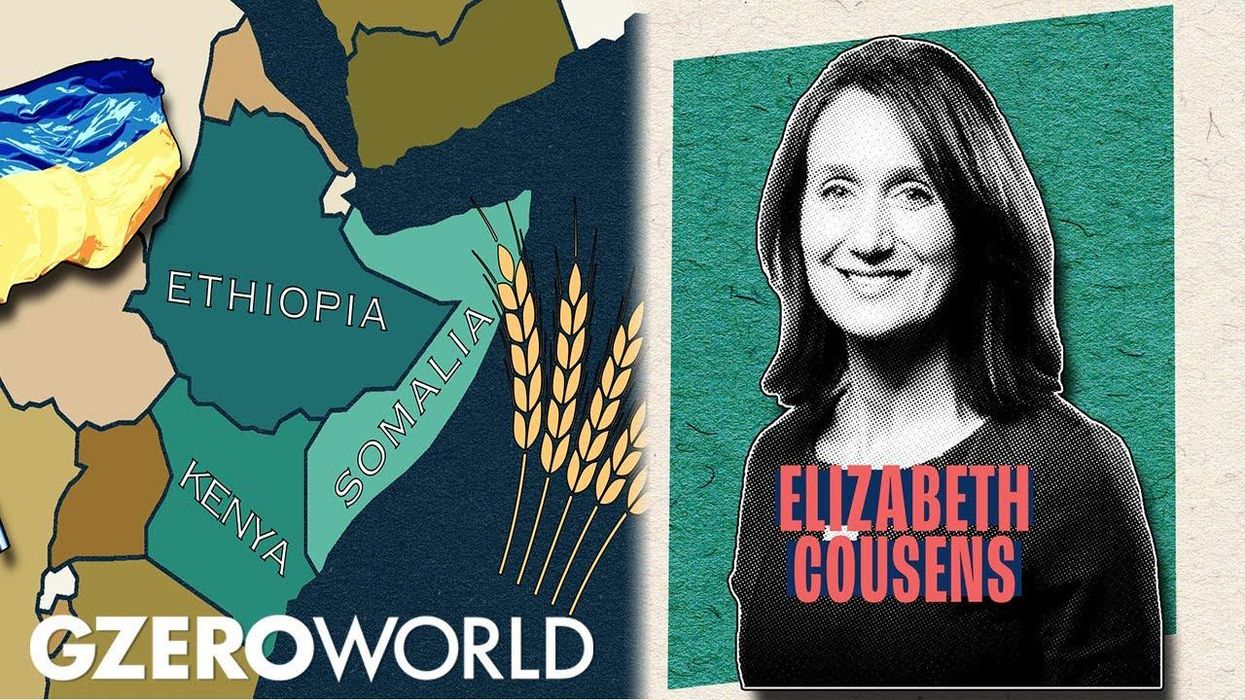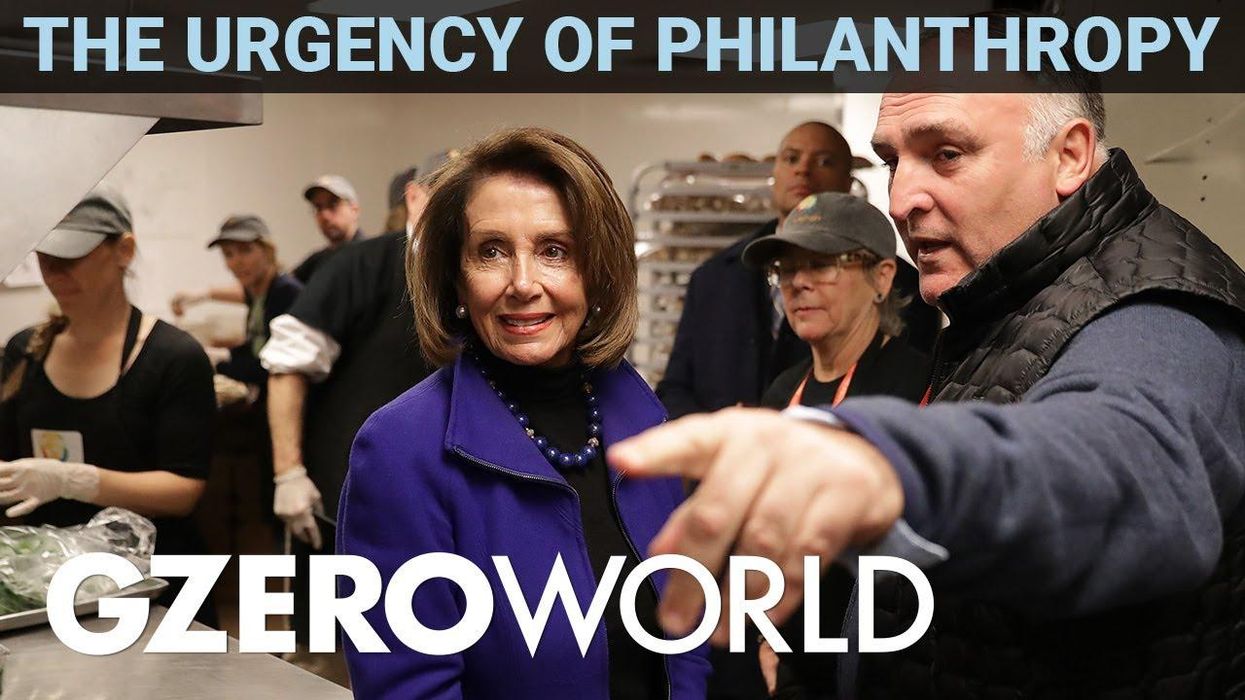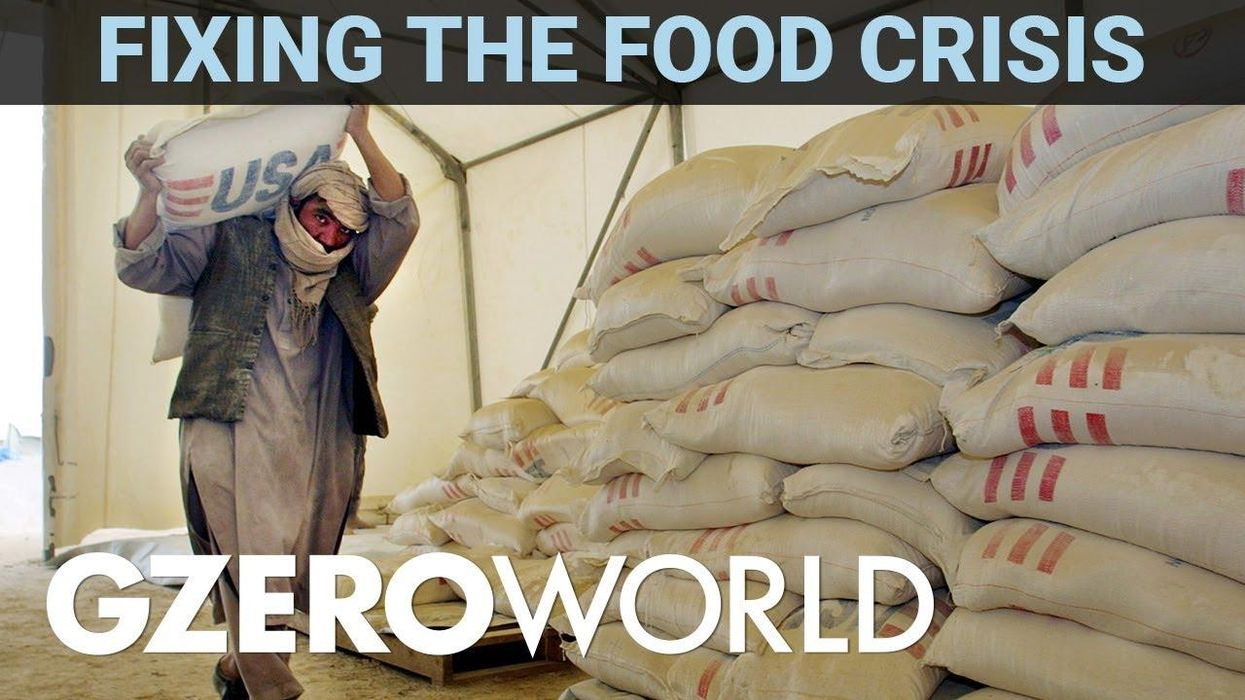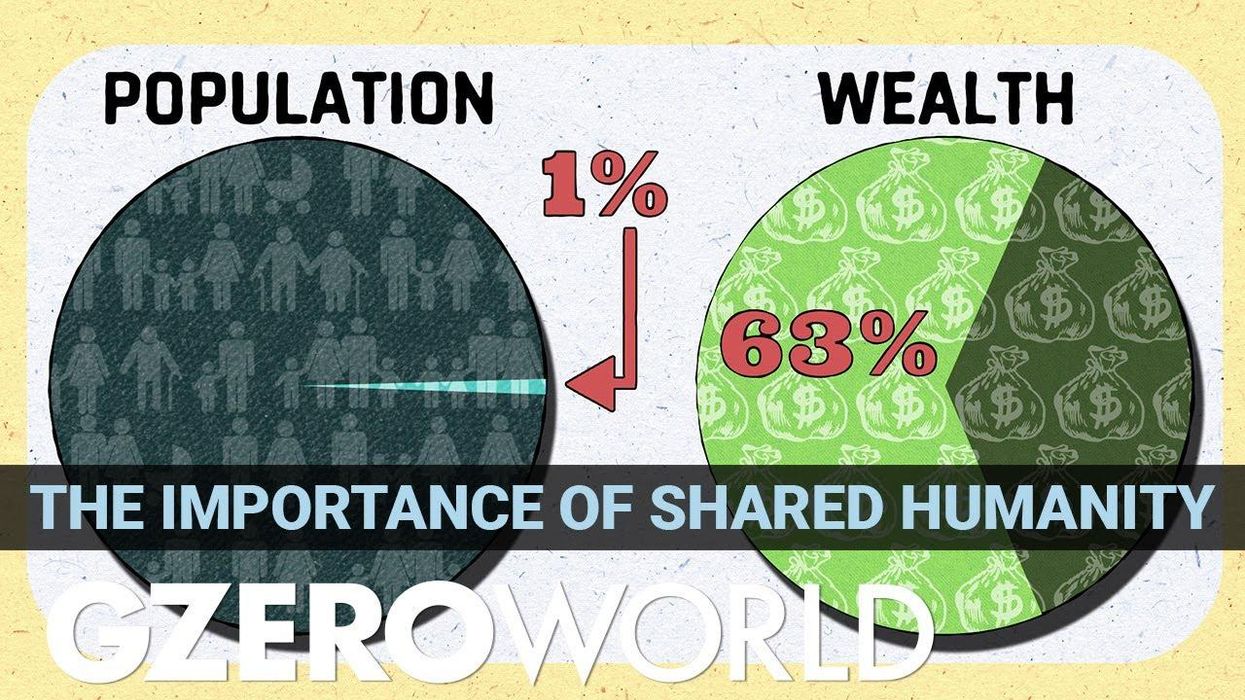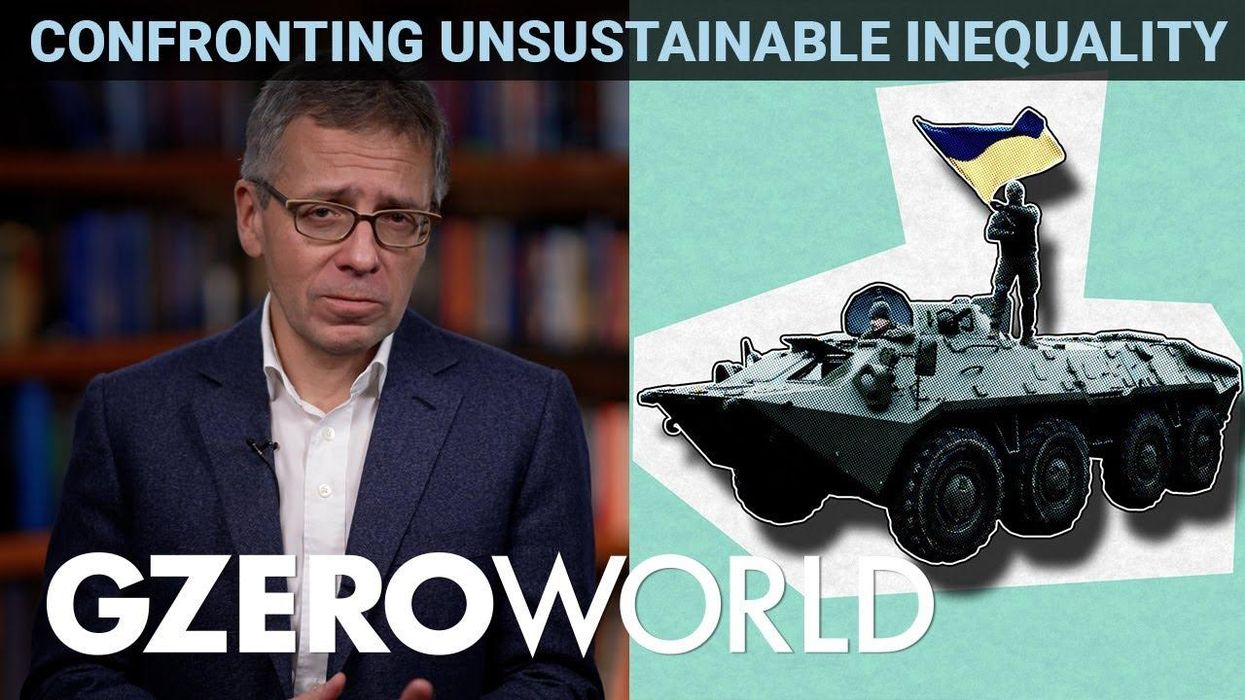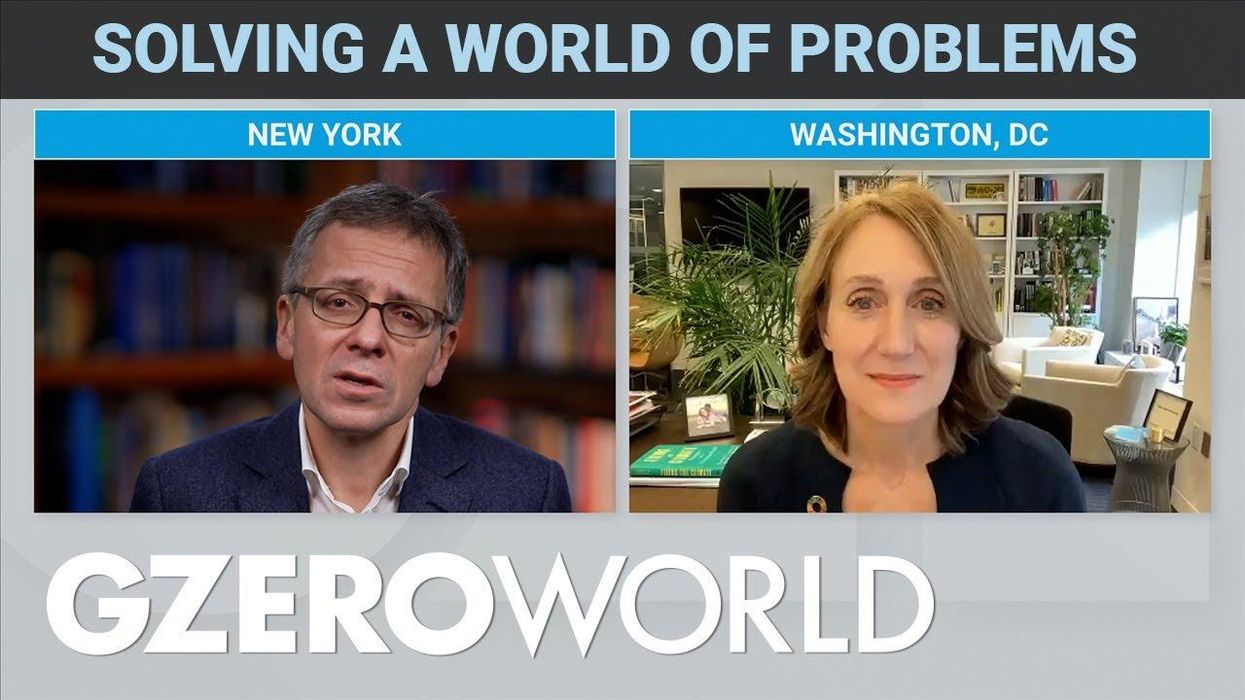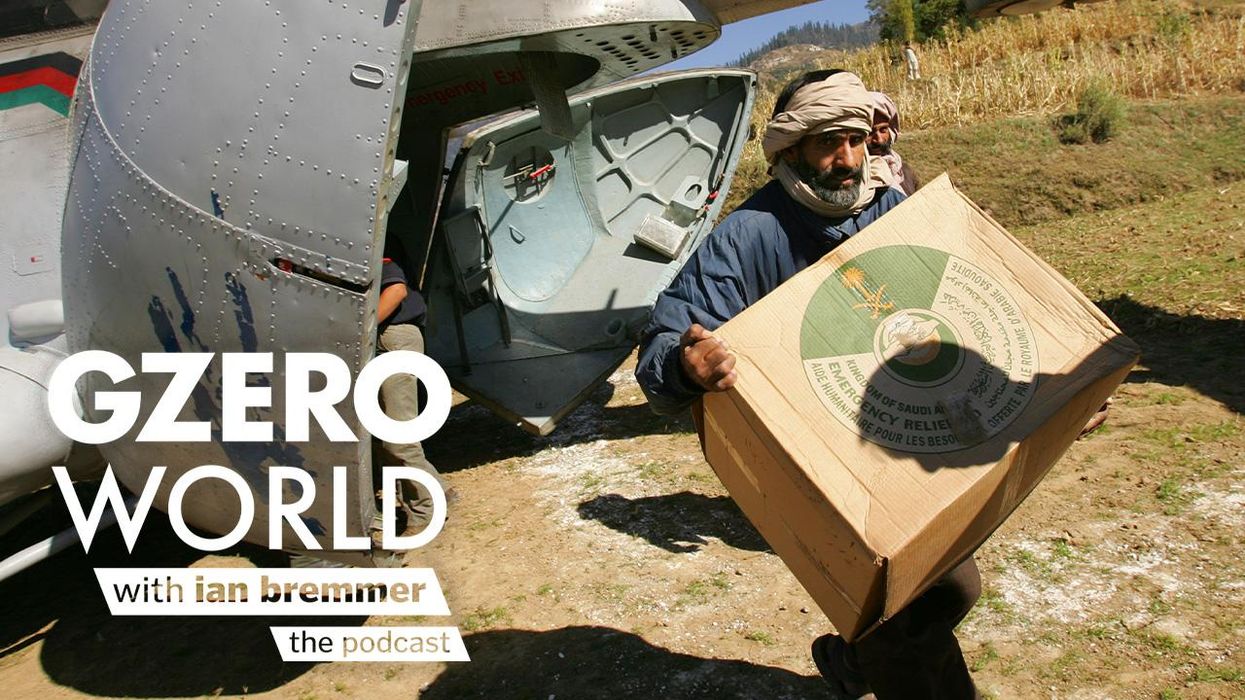GZERO World Clips
Philanthropy's moment to act
It's almost the first anniversary of Russia's war in Ukraine. On March 11, it'll be three years since the World Health Organization declared COVID-19 a pandemic. And 2022 was the sixth warmest year on record since 1880. We are still dealing with the fallout from all three events. But not equally. Since 2020, the richest 1% of people has accumulated nearly two-thirds of all the new wealth created in the world. On GZERO World, Ian Bremmer speaks to UN Foundation President and CEO Elizabeth Cousens, who thinks it's the perfect time for institutions backed by the 1 percent to step up even more.
Feb 12, 2023
